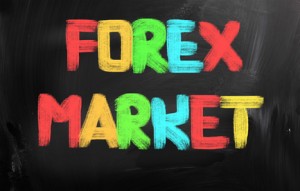Some marketers believe that brand loyalty is dead; mercilessly killed off by the Internet, social media and mobile. The truth is brand loyalty has simply changed and evolved. Today’s consumers are probably more media aware, Marketing literate and tech savvy than any generation in history. They just won’t tolerate the push, interruption marketing of yesterday. Nevertheless, old habits die hard.
Although marketers have more ingenious, surgically precise tools than ever before we often use them as blunt instruments to bludgeon consumers. Remarketing, for example, serves up a company’s ads after a prospect has visited their website. It’s a clever Google innovation. It’s also incredibly annoying.
Many consumers accept that brands must be active on social platforms like Facebook and Twitter. However, there’s a paradox at work here. The same consumers who are willing to click on a link to take part in a competition, prize draw, promotion or other incentive also say they will stop using social media because of advertising. In a recent Chartered Institute of Marketing and YouGov report entitled Keep Social Honest 64% of consumers said they would stop using social media if they were bombarded with brand advertising. 61% of consumers said they were irritated by marketing and advertising on social media. The report also offers some insights into how little consumers trust the content brands serve up on social. Nearly half of all respondents said they would boycott a brand if they felt they were being misled by marketing messages. So brands are always walking a tightrope between building credibility and a loyal following and alienating the very same people.

How Do Consumers Choose a Brand?
Brands are like people. They possess their own distinct characteristics, personalities and values. Consumers often choose one brand over another because they know, understand and identify with these traits or aspire to them. It’s a similar process to the way we pick our friends and build social circles. At the heart of this process is trust. We all love brands that keep their promises, exceed our expectations, surprise and delight us, and do it all consistently. In a world of digital overload, customer reviews have emerged as a handy barometer of trust. Something like 65% of consumers read reviews before making a purchase. Websites like Amazon and TripAdvisor have come to exemplify this phenomenon. These sites are far more powerful than anything social media can do for brands.
Cultivating brand advocates is a relatively low cost, high impact marketing approach. Consumer-to-consumer word of mouth marketing generates more than twice as many sales as paid advertising. 90% of brand advocates write something positive about their purchase experiences. Advocates tend to spend more than twice as much on their favourite brands than the average customer according to the Branderati website. What’s more, brand advocates are prolific content producers. But how many brokerages have a brand advocacy program?
FX Traders Stay Loyal To Brokers
In the highly competitive FX world, the good news for brokers is that the majority of traders stay loyal to a principle account even when they hold several. The question is what kind of loyalty is being displayed? Is it weak, fragile loyalty based on a perception there is little choice between one broker and the next? Or is it strong brand loyalty, also known as affective commitment, that’s based on trust and personal identification? Research shows that consumers who identify strongly with a brand are willing to pay a price premium; they make larger purchases, and buy more frequently.
There is no secret to building trust. Keep your word (brand promises), tell the truth, be transparent about how you do business and be consistent in your brand communications. Loyalty and that all-important repeat business will come from making your offer more compelling, more accessible and easier to use than the next guy. In the struggle to capture and retain customers social trading offers some interesting ideas. Social trading has clearly borrowed from game design. Game mechanics have the potential to enhance current customer relationships, help achieve business goals, raise brand awareness, engender loyalty and acquire new traders. However “gamification” is no panacea. According to Gartner more than 70% of the world’s 2,000 largest companies are expected to have deployed at least one gamified application by year’s end. But, 80% of current gamified enterprise applications will fail to meet their objectives, due largely to poor design.

Building Loyalty
Deregulation and subsequent commoditization of air travel in the late 1970s and early 1980s saw the birth of the frequent flier program. Since then loyalty, incentive and reward programs have become massive businesses in their own right. Today most of us are enrolled in a supermarket, credit card and frequent flier program. The power of these loyalty schemes is enormous. Many frequent flier members admit to taking more expensive flights or circuitous routes for the sole purpose of levelling-up (moving to the next level in the program). The most extreme example of this behaviour is the mileage run, where a member takes a completely unnecessary flight simply to gain miles or status.
Loyalty bonuses have become a fairly common tool for on-boarding Forex customers, encouraging them to fund accounts and trade regularly. Some brokers have gone a little further and introduced basic loyalty programs. Surely in the largely undifferentiated forex market there is an opportunity to develop more sophisticated loyalty programs that appeal to the highly competitive, status driven and reward focused instincts of traders. Ultimately, brokers will have to look beyond traditional marketing, advertising and sales techniques to successfully capture traders’ hearts, minds and long term loyalty.


















